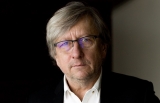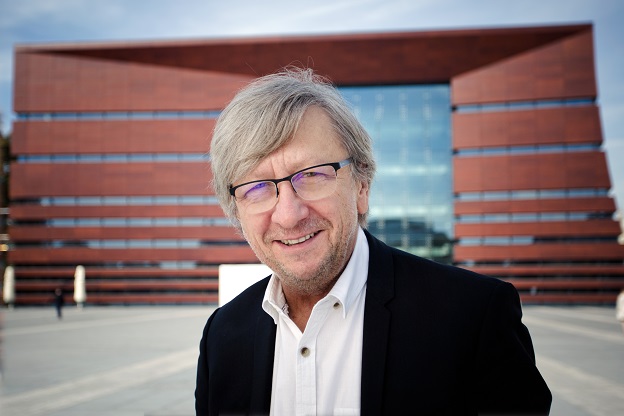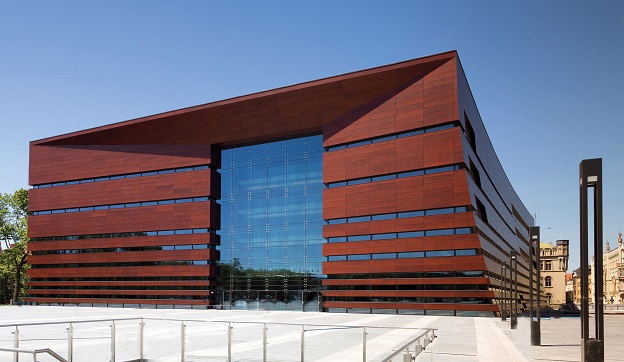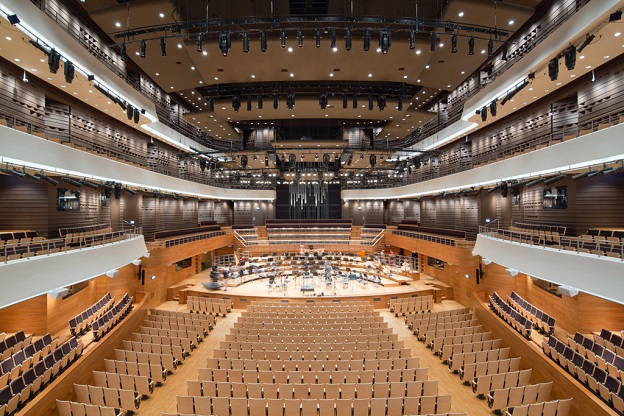The National Forum of Music is a musical institution, but it’s also a venue – a new complex of four concert halls in Wrocław. A good concert hall for the Wrocław Philharmonic had been talked about for decades. How did the National Forum of Music emerge from these many different plans and concepts?
The story of the NFM began in 2002, when Rafał Dutkiewicz was elected Mayor of Wrocław. The project to build a concert hall was on his agenda. At that time I was his advisor in preparing the programme for culture. Later he hired me as his plenipotentiary – and work began on the construction of the hall. Of course, the Wroclaw community had been making attempts to erect a new concert hall for a long time, but only this one proved successful.
From the very beginning, we planned to carry out two things in parallel: on the one hand, to build a hall of high standard, but on the other hand, to build a programme for the development of musical life in Wrocław. We carried out both these investments in parallel, but it must be said that the construction project itself, the hall became a catalyst for all the changes that took place in how the cultural offer was conceived, in the development of musical life.
Let’s recall what Wrocław had before the NFM.
In 2005, that is when this project to build a new hall was already underway, I became Director of the Wroclaw Philharmonic and at the same time Director of the Wratislavia Cantans festival. So there was the great festival, there was the Philharmonic – and a 465-seat hall in an ugly building from the 1960s that was actually a major renovation of three townhouses. That was the starting point. Today we have a venue that houses four halls of the highest standard. We have, in addition to the Philharmonic, more than a dozen other ensembles, including some big ones, and several festivals. All this, this is the NFM.
So you could say that success is born thanks to the new space.
Yes, although I must emphasize that it was not an idea just to build a venue. From the beginning, the project consisted of two elements – building the hall and a cultural offer – and this is very important. Of course, the fact that the hall has extraordinary quality and prestige has helped everyone, including the artistic ensembles, has helped to make a qualitative leap, because even with the great efforts of the musicians in the old hall this was not possible. There was no chance for any development: musicians, even those sitting at the same music stand, could not hear each other – there was noise. So in this sense, this new venue has become a fantastic tool for the development of artistic ensembles, building their form, their importance. But building a community of our listeners as well. We used to be able to invite a handful of people, and often the old hall wasn’t sold out, because people felt it was inadequate. And now hundreds of thousands visit us each year.
What is this phenomenon based on? I remember that the old 460-seat hall wasn’t empty, but wasn’t filled to capacity either, while the new 1800-seat hall often is – and de facto the same artists are playing.
Although there were concerts where we sat on the steps … But this was not a regular thing. Indeed, there were quite a few such evenings, during which we were not able to fill the hall.
However, I also remember that in the process of designing this facility and conceiving its programme we had very strong objections: does Wrocław need such a big hall? Why? Will we be able to sell it? We did not have good publicity, because no one believed that suddenly this audience of 400 people would increase to 1400 or even more. It wasn’t easy. The investment in general was difficult, for technological reasons, but also because of the great skepticism of the wider milieu. This, I admit, was hard even though in the artistic community everyone dreamed of such a hall, but in our environment, in the media, also among politicians, as well as among the broader society, there were opinions undermining the rightness of our actions … I remember various newspaper articles and later reactions to these articles – lots of people shared these concerns that were presented in the media. And the investment was dragging on, there were so many obstacles. Yes, there were difficulties, because this is the centre of the city, in a historic place, on top of that the financial crisis of 2007-2009 happened, so the problems piled up. But we managed to overcome them, and I think we can be proud of this work of the people of Wrocław.
How many ensembles entered the new venue in 2015?
We had the Wrocław Philharmonic Orchestra, the Leopoldinum Chamber Orchestra, which existed before, but also found its home at the NFM, then the newly established NFM Choir, the Wrocław Baroque Orchestra, the Boys’ Choir, in addition to a number of smaller ensembles, such as the Lutoslawski Quartet, or LutosAir and other smaller groups … Quite a few, and it must be said that these ensembles were on a very high level back then. This implies the role of the NFM in the entire region, a culture-creating role, hence so many ensembles, one could say that most of the musical ensembles in Wrocław are based there. And they function according to an idea that guides the entire institution: each of these ensembles and each of the festivals that take place here, has its own artistic director. And each director has their own artistic taste, their own requirements. Of course, these are outstanding artists, some of international class. So we can say that the NFM brings together very diverse artistic and stylistic tastes, and that it has become like a mosaic, where each of the elements of this mosaic is artistically independent.
This is very important, because there have also been fears that if everyone were operating within the NFM, there would be some kind of homogeneous offer, that the NFM would dominate in an artistic sense what has been happening in Wrocław. So we have been very careful, I have put a lot of effort into ensuring this would not be the case. Naturally, I have chosen the artistic directors according to my own taste, but these are outstanding artists, and I very much respect their distinctiveness – they are the ones who program the season of their ensembles or festivals. This is very important, and the result a patchwork rather than a centralist management of artistic groups.
Instead, we have a strong brand in terms of management. This is necessary if we want to be a partner for all the major players in the world, for concert halls, for large concert agencies. They see us as a big player, while our artistic offerings are the result, as I said, of the tastes and thoughts of many artistically distinct people.
You’ve already answered my next question, but the question still remains, how do you see the future of the NFM?
We have not been functioning for a long time yet, including actually three seasons in some sense abnormal, because we had a pandemic, a lockdown. At the moment we have a crisis because there is a war in a neighbouring country, which affects our lives and also our finances. However, we have a sense that our goals, ever since we started work here until today that these goals have been met. We even have a sense of pride that we are appreciated, because how else to take this award, the ICMA, that the NFM is receiving, how else to comment on the fact that it is our choir that is collaborating with the Berlin Philharmonic on a major production and having a joint concert, and how else to take the fact that Zubin Mehta is recommending our hall as a model, and new venues inspired by the National Forum of Music are being built in Belgrade and Munich?
And now the question of the future arises because nothing is given once and for all. I have to say that we are probably on the eve of the moment when we should define once again what the National Forum of Music should be in the next 10-15 years or so. This is a very broad question, it is not only related to an artistic vision, but it is also a question for politicians, for our partners – we say “leading authorities”. I mean the minister of culture, the marshal [of the voivodeship], the mayor of Wrocław should be included in this conversation – all those who are co-owners, that’s the word I would use, or “co-managing authorities”, co-hosts of this place. Everything happens in some social area. Of course, without money not much can be done, so I think they also have to answer the question of what the National Forum of Music is to be in the future. If someone were to ask me – they probably will, and if not, I’ll want to formulate such a vision for the near or distant future myself – I’d say that everything we’ve been doing should be done even better, more profoundly. That is, first of all, we should become deeply embedded here, in this place where we operate, in Wrocław, in Lower Silesia, because we are here and for these people, we serve them in the first place. At the same time, I think we have great potential to have a stronger presence in the world, to have more Polish music find its place in concert halls, in festivals around the world, in the repertoires of orchestras, because it seems to me that there are lots of great composers and works that are waiting to be more widely discovered. And we, I think, are able to do that.
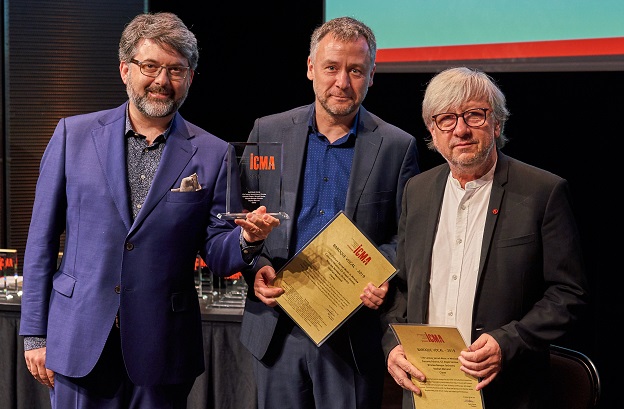
Conductor Stephan MacLeod, Andrzej Kosendiak, the General Manager of the National Forum of Music from Wroclaw and Jaroslaw Thiel, artistic director of the Wroclaw Baroque Orchestra at the ICMA Award Ceremony in Lucerne in 2019 (c) Ingo Höhn
The records released by the NFM, recognized and awarded by the ICMA, also serve this purpose.
I appreciate these ICMA awards very much, because I have the feeling that someone is listening to these records we make. It’s so thrilling when I see reviews, five stars awarded, and you can see that they are appreciated, that is, they reach the listener. Thank you for this year’s award [NFM received the Special Achievement Award], and I have the feeling that these galas are held every year in some places, it’s true, but it’s always so that all these places get awards for being a model for others. So yes, I’m proud of that. Sometimes we need to look at ourselves through other people’s eyes – and if we see that someone notices us and evaluates us in this way, it’s deeply satisfying.











